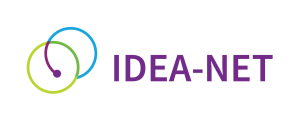University of Belgrade – Belgrade, Serbia
In the last two years the following activities regarding equal access/inclusion/diversity were taken under the plan:
Support and counselling for students and university staff,
Lectures, workshops, seminars for students, faculty, and non-teaching staff,
Cost coverage of preparations for university enrolment.
The cost coverage of preparations for university enrolment has the greatest impact because the financial aspect appears to be something that secondary schools’ students from these vulnerable groups are most aware of as a source of concern, i.e., that they need support in that regard. Although these other forms of support are also welcome, students do not consider them as valuable as financial support.
The program’s newest innovation involves promoting it at the faculties with the aim of securing the highest possible number of slots for students through the financial incentives provided by the program.

Centre for Career Development, University of Belgrade
Belgrade, Serbia
IDEA-net: Expanding the network of Inclusion, Diversity, Equity and Access (IDEA) practitioners in higher education through institutional capacity building
Project ref: 2022-1-NL01-KA220-HED-000089789

This project has been funded with support from the European Commission. This website reflects the views only of the authors, and the Commission cannot be held responsible for any use which may be made of the information contained therein.
